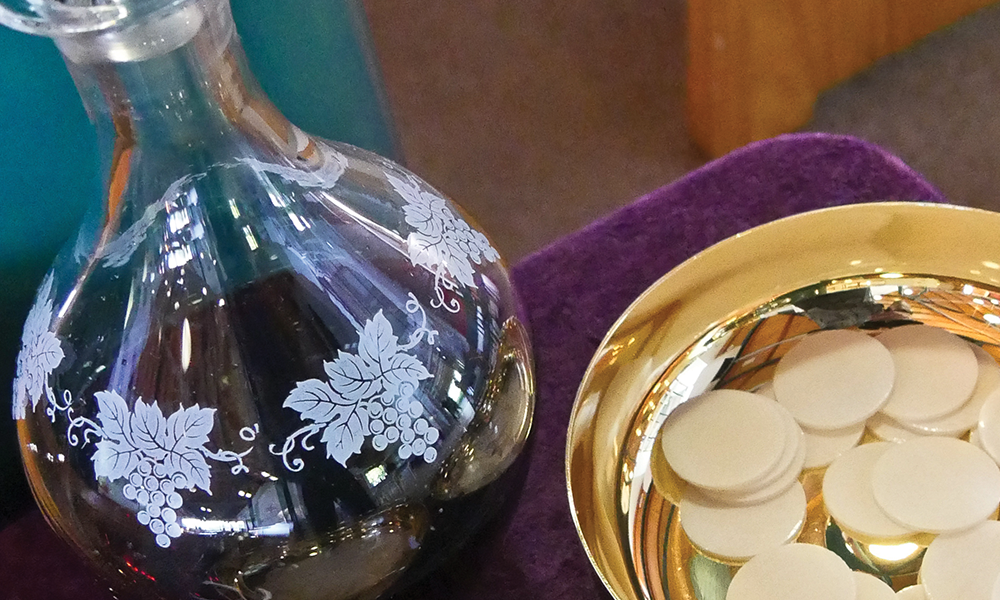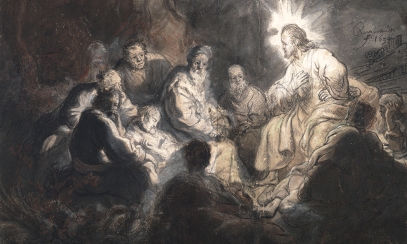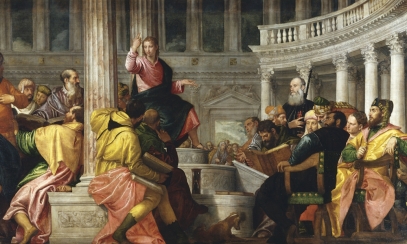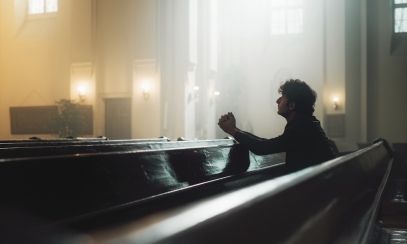
The Preparation of the Gifts: It’s not intermission
The two main parts of the Mass are the Liturgy of the Word and the Liturgy of the Eucharist. The first part of the Liturgy of the Eucharist is the preparation of the gifts, sometimes referred to as the presentation of the gifts or the offertory.
The two main parts of the Mass are the Liturgy of the Word and the Liturgy of the Eucharist. The first part of the Liturgy of the Eucharist is the preparation of the gifts, sometimes referred to as the presentation of the gifts or the offertory.
I think this is often viewed as a type of “halftime” or “intermission” in the Mass as a whole. We have just sat down after the Universal Prayer. Perhaps you are looking for your envelope or you feel like a passive bystander watching the bread and wine brought up the aisle. I think it is easy to “check out” at this part of the Mass just like we check out during halftime of a football game. In stories, the first part sets the tone for the whole work. How can we understand the end if we have skipped over the beginning? If we want to understand the Liturgy of the Eucharist as a whole, we need to understand what is happening here.
At this point, a few people representing the whole congregation bring forward the bread and wine to the priest who will offer each to the Father. The priest prays: “Blessed are you, Lord God of all creation, for through your goodness we have received the bread we offer you: fruit of the earth and work of human hands, it will become for us the bread of life.”
We come asking the Father to transform these simple gifts of bread and wine into the bread of life and into our spiritual drink. We are bringing these gifts into the sphere of God, asking him to make our offerings— our sacrifices— holy.
Sometimes we come to the Mass as consumers. We come expecting to receive something— a word from the Gospel to inspire us, from the homily to teach us how to put our faith into practice and, above all, the gift of finest wheat in the Eucharist.
But we are not to come to Mass simply as a consumer. We do not come simply expecting gifts, though we certainly receive the greatest gift there. We ought also to come expecting to give a gift. The Mass is not a vending machine but an encounter with God, and in that encounter, there is an exchange of gifts. The offering of the bread and wine convey that. It represents the gift of our whole lives back to God who has given us everything. Just as the bread and wine brought forward are transformed, so we pray that the ordinary work, struggles and joys of our lives can be transformed by the Spirit into something holy.
Rather than seeing the preparation of the gifts as an “inter” mission, something happening in between acts, we should see it more as an “intra” mission, containing the mission of the whole within it. Wilfrid Stinissen writes, “A great deal would happen in our lives if every time we celebrated the Eucharist, we would place on the paten something of our own, something that we know is directed wrongly and that therefore blocks us. It would help us to be more engaged in the Eucharist, to break the routine” (Stinissen, Bread that is Broken, 59-60).
You are at Mass to be transformed by the love of God. Place your illness, your sin, your doubt, your concerns over your job, your marital difficulties, on that paten.
God can make bread and wine into the body and blood of Jesus. Can’t he also transform you? Can’t he transform your heart?
The Mass is the offering of a sacrifice, the offering of Jesus to the Father for the salvation of the Church. But it is also we who are being offered up as well. We are praying that we may be transformed into one offering to God. Next time you are at Mass, don’t check out during the presentation of the gifts. It’s not intermission. It is showing us our mission, calling us to offer ourselves to God who has given himself to us.
Father Andy Laframboise is pastor of St. Elizabeth of Hungary Parish in Reese and St. Frances Xavier Cabrini Parish in Vassar and director of priestly vocations. He holds a licentiate in Sacred Theology in Marriage and Family Studies from the Pontifical John Paul II Institute for Studies on Marriage and Family.



